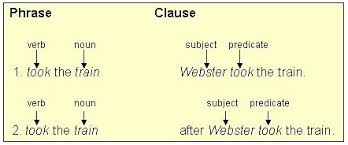记忆方法
将“clause”分解为“clo”和“use”。想象“closet”里挂着一条“useful”的裤子,暗示“clause”(从句)是一个在句子中起到“useful”(有用的)作用的部分。这样通过场景联想,可以更容易记住“clause”的意思。
以上内容由AI生成, 仅供参考和借鉴
中文词源
clause 从句
词源同close,关闭。此处用于语法,即构成一个独立语法结构的句子。
英语词源
- clause
-
clause: [13] The etymological notion underlying clause is of ‘closing’ or ‘termination’. The word derives ultimately from Latin claudere (source of English close) and was originally applied either as a rhetorical term to the conclusion of a sentence, or as a legal term to the termination of a legal argument. Gradually, in both cases, the element of finality fell away, leaving the senses ‘short sentence’ and ‘section of a legal document’, which passed into English.
The past participle of Latin claudere, clausus, probably produced an unrecorded noun *clausa (known only in its diminutive form clausula), which passed into English via Old French clause.
=> clavier, close - clause (n.)
- c. 1200, "a sentence, a brief statement, a short passage," from Old French clause "stipulation" (in a legal document), 12c., from Medieval Latin clausa "conclusion," used in the sense of classical Latin clausula "the end, a closing, termination," also "end of a sentence or a legal argument," from clausa, fem. noun from past participle of claudere "to close, to shut, to conclude" (see close (v.)). Grammatical sense is from c. 1300. Legal meaning "distinct condition, stipulation, or proviso" is recorded from late 14c. in English. The sense of "ending" seems to have fallen from the word between Latin and French.
权威例句
- 1. The sentence consists of a main clause and a subordinate clause.
- 这句中有一个主句和一个从句.
- 2. The third clause of the contract specifies steel sashes for the windows.
- 合同的第三款指定使用钢窗.
- 3. The intention of the clause is clear.
- 那条款的含义是清楚的.
- 4. They made a clause - by - clause rebuttal of the letter.
- 他们对这封信 逐句 作了反驳.
- 5. What clause do you require in the contract?
- 你要求在合同中订上什么条款?

